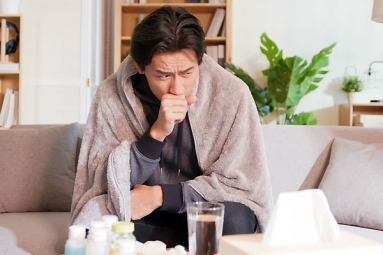
(Image source from: Canva.com)
Many individuals experience common issues like hemorrhoids without openly discussing them. While some might overlook early signs, specialists suggest that these can greatly influence a person's life quality. Are you facing hemorrhoids but feel embarrassed to speak about it? Here are three suggestions to help you deal with hemorrhoids:
Hemorrhoids are enlarged blood vessels, specifically veins, located in the rectum or anus. They usually occur due to extra pressure caused by constipation, long periods of sitting, pregnancy, or heavy lifting. There are two forms: internal (inside the rectum) and external (surrounding the anus). Many individuals feel symptoms such as itching, pain during bowel movements, leaking from the anus, or seeing fresh blood in their stool. Although it may seem uncomfortable to talk about, it is very common and can be managed. Eating a diet rich in fiber, including fruits, vegetables, and whole grains, makes stool softer and helps keep regular bowel movements, which lowers the need to strain. Creams or witch hazel pads can provide quick relief from irritation and swelling. It is best to leave smartphones out of the restroom. Taking short movement breaks throughout the day can make a significant difference.
Non-surgical options are effective during the early phases or mild flare-ups. However, they do not cure hemorrhoids; they assist in managing symptoms and halting them from getting worse. Watch for recurring symptoms, particularly rectal bleeding. It is crucial not to self-diagnose because blood in stool might indicate other conditions like anal fissures or polyps, or even cancer. Also, refrain from harsh wiping, overusing laxatives, or ignoring the urge to use the restroom, as these can worsen hemorrhoids. If symptoms do not get better, seek advice from a gastroenterologist. Less invasive treatments, like rubber band ligation or infrared coagulation, might be options. Surgery may be needed in severe cases. The expert emphasized that while hemorrhoids are not life-threatening, they can disrupt everyday activities. Simple changes can greatly help, and seeing a gastroenterology expert in a timely manner can avoid complications.







